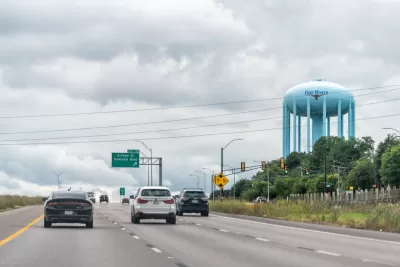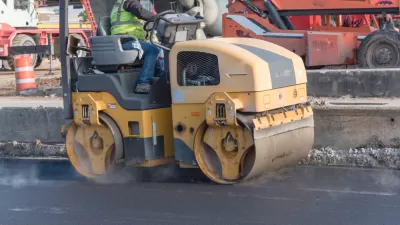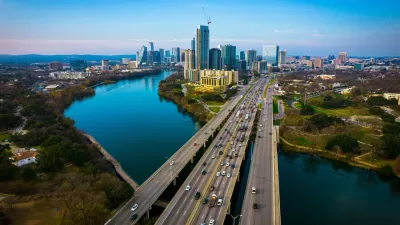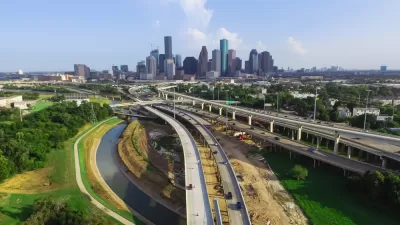Community Design Fort Worth, a nonprofit collective of planners and designers, is pushing the Texas Department of Transportation to do something revolutionary with its plans to widen Interstate 30.

The Texas Department of Transportation (TxDOT) is conducting a corridor study of 12 miles of Interstate 30 between Interstate 820 and Chisholm Trail Parkway with the potential to widen the freeway for promised safety, mobility, and congestion benefits.
According to an article by Sandra Sadek for the Fort Worth Report, advocates hope the project could offer a chance to reconnect neighborhoods historically severed by the freeway.
“Since its creation 70 years ago, Interstate 30 West has divided Fort Worth’s mostly white and affluent neighborhoods from its racially diverse and lower-income neighborhoods,” writes Sadek. “Now, with the Texas Department of Transportation’s proposed expansion and work on I-30, Fort Worth advocates hope to use this opportunity to join communities previously separated by the interstate and create opportunities for economic growth across the city.”
State departments of transportation are infamous for promising congestion and safety benefits from freeway expansion despite a lack of evidence to back up their claims. TxDOT is responsible for one of the most infamous examples of a failed freeway widening, with the Katy Freeway in Houston.
The advocates described in the source article, however, are aware of those limitations, and are calling on TxDOT to innovate their freeway planning approach.
“Urban planners are looking at highways across the entire country, and seeing the impacts that that car-centric approach had for building those, not taking into consideration other users,” says Community Design Fort Worth Executive Director Ann Zadeh, as quoted in the article. “Now people are saying, ‘What can we do to do this better going forward?’ You live and learn and hopefully, you don’t repeat things that brought on negative consequences and take the opportunity to do better when you know better.”
“The $1.8 billion dollar project is split into two phases, with the first recommendations to be announced in early 2023,” adds Sadek for a benchmark to monitor the project moving forward.

Alabama: Trump Terminates Settlements for Black Communities Harmed By Raw Sewage
Trump deemed the landmark civil rights agreement “illegal DEI and environmental justice policy.”

Study: Maui’s Plan to Convert Vacation Rentals to Long-Term Housing Could Cause Nearly $1 Billion Economic Loss
The plan would reduce visitor accommodation by 25% resulting in 1,900 jobs lost.

Planetizen Federal Action Tracker
A weekly monitor of how Trump’s orders and actions are impacting planners and planning in America.

Wind Energy on the Rise Despite Federal Policy Reversal
The Trump administration is revoking federal support for renewable energy, but demand for new projects continues unabated.

Passengers Flock to Caltrain After Electrification
The new electric trains are running faster and more reliably, leading to strong ridership growth on the Bay Area rail system.

Texas Churches Rally Behind ‘Yes in God’s Back Yard’ Legislation
Religious leaders want the state to reduce zoning regulations to streamline leasing church-owned land to housing developers.
Urban Design for Planners 1: Software Tools
This six-course series explores essential urban design concepts using open source software and equips planners with the tools they need to participate fully in the urban design process.
Planning for Universal Design
Learn the tools for implementing Universal Design in planning regulations.
Caltrans
Smith Gee Studio
Institute for Housing and Urban Development Studies (IHS)
City of Grandview
Harvard GSD Executive Education
Toledo-Lucas County Plan Commissions
Salt Lake City
NYU Wagner Graduate School of Public Service





























